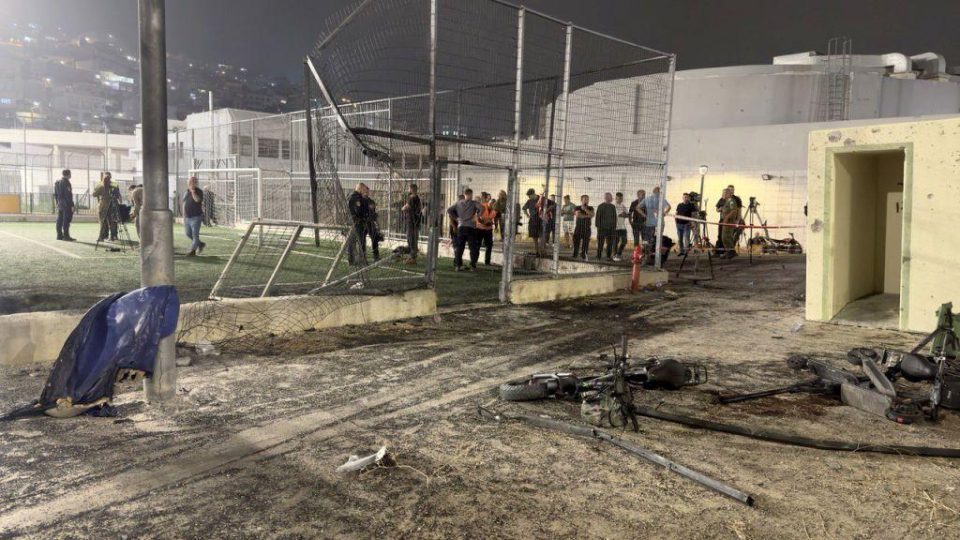Israel says the rocket was fired from Chebaa, a small village just a short distance away across the western flank of Mt Hermon, which towers over Majdal Shams.
Hezbollah disputes Israel’s claim, but around the time the rocket landed here, its media outlets announced that it had fired rockets towards an Israeli military base less than two miles from the football pitch.
This is a day of funerals for some of the 12 boys and girls, all between 10 and 16, who died here. Grief hangs heavy in the summer heat. A voice is briefly raised, furious and urgent.
“How come there’s still a Beirut?” he cries. “We’ve had 10 months of our children living in fear.”
There’s a ripple of applause, but opinion here in this Druze minority town is divided on how forcefully Israel should respond.
After almost 10 months of simmering conflict, the prospect of an all-out war scares many.
There are plenty of people here – local Druze elders in their distinctive red and white turbans and baggy trousers, military officials, visiting government ministers and of course many journalists.
But conversations, around the crater where the rocket landed, are hushed, respectful.
A black flag flies at the spot where the rocket landed last night, gouging a shallow crater in the pitch and blowing out the metal fence around the pitch.
There are shrapnel holes everywhere.
Wreaths have just been laid.
Quiet and deeply sombre scene around Majdal Shams football pitch
Many people are simply standing by the crater, taking in the scene, lost in thought.
In the corner of the pitch, someone has tried to remove the bloodstains on the artificial turf, but with only limited success.
Outside the fence, bicycles and scooters lie scattered, all blackened from yesterday’s brief but devastating fireball.
There’s a bomb shelter metres away from the Majdal Shams football pitch where 12 children and young adults died yesterday, but when the siren sounded last night, they had mere seconds to respond.
They had absolutely no chance.





Comments are closed for this post.